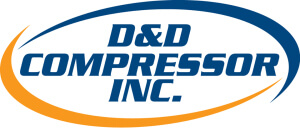How Pressure Affects the Performance of a Rotary Screw Compressor

Rotary screw air compressors deliver quiet and vibration-free performance, and when sized correctly by an air compressor supplier in San Jose they can also be among some of the most effective and energy-efficient air compressors on the market today. Whether you’re looking for an industrial air compressor for a giant manufacturing operation or a smaller commercial air compressor for an auto body shop, a rotary air compressor might be the right solution. As you do your research and weigh the different factors and considerations that go into selecting an air compressor for your business, keep in mind how pressure affects the performance of rotary screw air compressors.
Torque and Discharge Pressure
The torque required to turn the rotors inside the air compressor is a function of the pressure pushing against the rotors, which means the torque required to move a given volume of air through the compressor is reduced as the discharge pressure is reduced. In general, the air compressor industry estimates approximately a 0.5 percent drop in power for every 1 psi reduction in discharge pressure.
Internal Friction Loss
The pressure at the discharge of the compressor also includes pressure losses across internal components caused by friction and heat. For oil-flooded rotary screw compressors, air goes through internal piping, an oil separator element, baffles, check valves, heat exchangers, and a moisture separator before being discharged. The influence of internal friction loss on pressure changes within the air compressor can affect torque, power, efficiency, and performance.
Power Factor Value
The math required for calculating power relative to discharge pressure for a specific air compressor system (which in turn yields insights regarding efficiency and output) is very complex, but the change in power associated with a reduction in pressure follows a general rule: as the power factor value becomes lower, the amperage will increase. However, because power factor values and voltage can change independent of the compressor operation, measuring amperage only can lead to incorrect assumptions regarding performance and efficiency.
